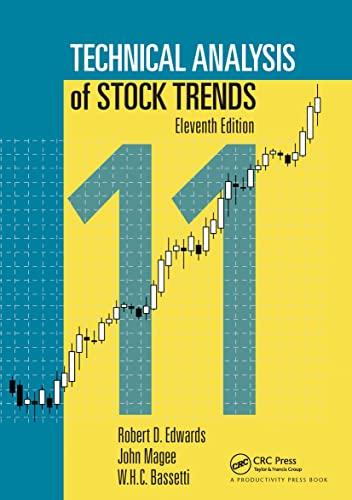Question
Real Options Case Imagine it is 2015. You are the assistant to the Chief Financial Officer (CFO) of Phord Motor Company, an established manufacturer of
Real Options Case
Imagine it is 2015. You are the assistant to the Chief Financial Officer (CFO) of Phord Motor Company, an established manufacturer of conventional autos that is considering entering the self-driving car market with its Phord Model T1 self-driving car.
Unfortunately, forecasts show that the T1 has a negative NPV of $36.52 million. The T1's cash flows are shown in the table below. It can't meet the 18% hurdle rate.
"The T1 just can't make it on financial grounds," the CFO says ," but my gut instinct tells me we should go ahead."
"But you're missing a very important financial advantage," you say to the CFO.
"What?" says the CFO.
"If we don't launch the T1 , " you say," it will probably be too expensive to enter the self-driving car market later when Tesla is firmly established. If we go ahead, we have the opportunity to make follow-on investments which could be extremely profitable. The T1 gives not only its own cash flows, but also a call option to go on with version T2 of the self-driving car."
| Cash flows for Model T1 (in millions) | ||||||
|
| 2015 | 2016 | 2017 | 2018 | 2019 | 2020 |
| After tax cash flows | -150 | 120 | 140 | 300 | 700 | 0 |
| Required Capital Investment | -400 | 0 | 0 | 0 | 0 | 0 |
| Increase in Working Capital | -350 | -80 | -50 | 100 | 150 | 175 |
| Net cash flows | -900 | 40 | 90 | 400 | 850 | 175 |
|
| ||||||
| NPV @ 18% = -$36.52 million | ||||||
Question:
Calculate a) the value of the option to invest in version T2 of the self-driving car; and
b) the strategic (expanded) NPV of the T1.
Assume:
1.) The decision to invest in the T2 must be made after 4 years, in 2019.
2.) The investment required for T2 is $990 million
3.) The present value of cash inflows for version T2 is $670 million
4.) The future value of version T2's cash flows is highly uncertain, with a standard deviation of 40% per year.
5.) The risk free rate is 5%.
Step by Step Solution
There are 3 Steps involved in it
Step: 1

Get Instant Access to Expert-Tailored Solutions
See step-by-step solutions with expert insights and AI powered tools for academic success
Step: 2

Step: 3

Ace Your Homework with AI
Get the answers you need in no time with our AI-driven, step-by-step assistance
Get Started


